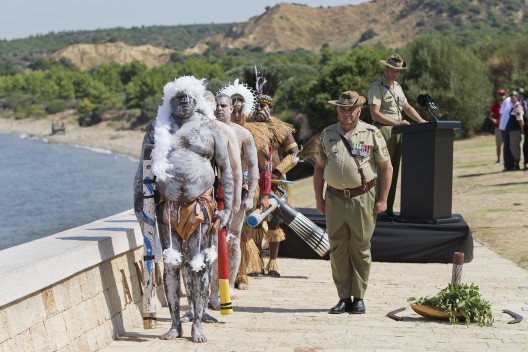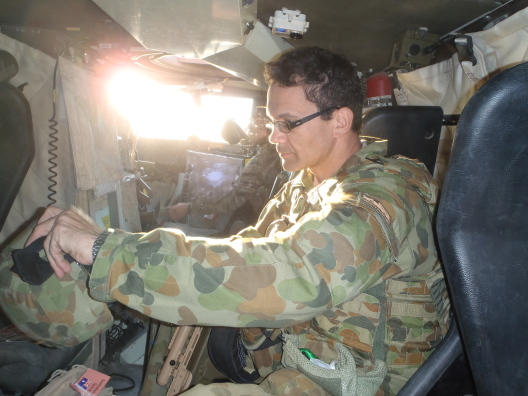Indigenous veterans unite

The Aboriginal and Torres Strait Islander Veterans Association (ATSIVA) is Australia’s first national organisation dedicated to supporting Indigenous veterans living in isolated, remote or rural locations.
Australia is a vast land, and while the majority of us live in a big city, there are countless communities dotted across the country, from the Top End to Tassie, from the Pacific Ocean to the Indian. Beyond the black stump, services can be patchy, the internet unreliable, and as a result fostering a sense of community among geographically dispersed veterans can be difficult.
A gap exists, and ATSIVA is working to fill it.
Established in February last year, ATSIVA is a new ex-service organisation (ESO) that works to support and improve the wellbeing of Indigenous veterans and their families. An ESO with this aspiration has never existed before.
ATSIVA was founded when Dr Joseph West, and a couple of his mates, realised unconnected veterans could benefit from access to information, services and camaraderie. Joe was spurred to establish ATSIVA after he was called to present evidence at the Royal Commission into Defence and Veteran Suicide.
‘I was asked what support services were making a positive impact for Indigenous veterans, and the question stumped me,’ Joe says. ‘It was then I realised there were no active organisations at the national level.’
Rather than accept the status quo or bemoan its absence, Joe decided to establish an organisation himself. As a proud Murrawarri man who grew up north of Bourke and served in the Australian Army for more than 20 years, Joe understood what it meant to be an Indigenous veteran, and what living in a remote region was like.
‘One of our objectives is to get support staff on the ground where veterans live,’ says Joe . ‘This includes trained advocates who understand the services and supports that are available. It means partnering with Indigenous veterans, people who are culturally sensitive and understand the concerns and needs of veterans living on country or in remote areas.’
Getting advocates to far-flung locations comes with its own ATSIVA CEO Dr Joseph West preparing to move in Afghanistan. FE ATURES logistical challenges, so ATSIVA also hosts virtual catch ups, creating connections and building a sense of community between people with similar experiences, but who are otherwise isolated.

By creating greater connections between veterans and advocates, ATSIVA aims to serve as a conduit, linking isolated veterans to other ESOs and DVA services. Although ATSIVA is still the new kid on the block, they have already had a positive response, with enthusiastic attendance at a number of virtual meetings.
‘In the six months since our website went live, several veterans in distress have reached out to us for support, and we were able to connect them to vital services,’ Joe says. ‘Without ATSIVA acting as a trusted point of contact, those veterans may not have received that support at all.’
ATSIVA has potential for significant future growth.
‘Australia wide there could be as many as 7,000–10,000 Indigenous veterans who could benefit from connecting with ATSIVA,’ Joe explains. ‘Over the coming year, we will be looking to expand. This means engaging more volunteers willing to donate their time to reach into these isolated communities, make connections and bring services to veterans who have previously been unsupported.’
If you believe you have the expertise, cultural knowledge and, most importantly, the time to donate, ATSIVA wants to hear from you. You can find out more about ATSIVA’s work via its website (www. atsiva.au). And of course, if you are an Indigenous veteran living in a remote location and would like to connect with ATSIVA you can email Joe at ceo [at] atsiva.au (ceo[at]atsiva[dot]au).
‘But ATSIVA is a broad organisation,’ Joe adds. ‘If you’re an Indigenous veteran living in a city, or a non-Indigenous veteran in an isolated community and you would like to reach out, ATSIVA will happily welcome you to the mob.’
Images:
- Australian Army soldiers of Aboriginal and Torres Strait descent conduct the Honouring Warrior Spirits ceremony during the Centenary of the August 1915 Offensive on Gallipoli, 6 August 2015. (Image: Defence)
- ATSIVA CEO Dr Joseph West preparing to move in Afghanistan.